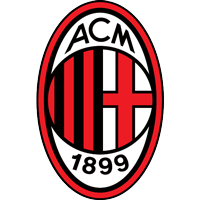Real Madrid president Florentino Perez has taken to the stage at the club assembly to once again push for Champions League reform in order to secure the future of football.
Perez has always been vocal about his insistence that Real Madrid's future is in either a European Super League or an expanded Champions League. Various models as to how that could work have been explored.
Plans are being constructed to revamp the Champions League from the beginning of the 2024/25 season and the idea of a 'Swiss Model' has emerged as a front runner to replace the current format.
Currently, 32 teams are separated in to eight groups of four, with the top two from each qualifying for the knockout stages. But this design has been branded obsolete by the elite clubs on the basis that there aren't enough 'marquee' matches between the big clubs.
So what does the Swiss Model propose and how will the competition evolve?
The Swiss Model: Champions League 2024
There have been a number of different proposals mooted, with European Club Association President Andrea Agnelli pushing a format where teams would be split into groups of eight and therefor play 14 matches in the group stage. But a number clubs pushed back against it and this has been sidelined for now.
The Swiss Model is the one most liked for a few reasons; it provides more games against other big teams, which means more revenue and Interest, whilst not putting so much pressure on domestic competitions that means teams would require to exit leagues or play second-string teams.
Here's how it could work:
- 32 teams will be split into four seeded pots, as they are currently
- Each team will play 10 matches, five at home and five away
- These fixtures are derived based on your seeding. So, for example, if Manchester United were seeded in pot one, they could expect two matches against other pot one teams, three matches against pot two and three, and two against pot four
- The home and away structure at the moment is therefore scrapped
- Once all 10 matches have been played, all 32 teams are entered into a giant league table
- The top eight teams automatically qualify for the knockout stages, and are also guaranteed entry into the following season's competition
- Teams ranked 9-24 then enter the playoff round where the winners join the top eight seeds in the Round of 16
- Once the 16 teams have been derived, fixtures will be ordered based on the ranking in qualification. For example Seed #1 will play against Seed #16, Seed #2 versus Seed #15, and so on
- From there, the tournament takes on a regular format of home v away knockout competition until the final
Swiss Model: The Pros
There are definitely benefits to this new Champions League structure. There will be more matches among Europe's elite, which solves a burning desire from the ECA powerbrokers. Ten fixtures without repetition will also lead to more variety and mean more different matchups than the current territory and seeding restrictions allow.
And, theoretically, there should be plenty to play for deep into the final rounds of games, with both automatic qualification and play-off places up for grabs. If we must restructure a competition that many believe is already in its optimum form, then it looks like the most acceptable way to do so.
Swiss Model: The Cons
But, as always, there are problems, most notably in finding an extra four matchdays for the group stages. The calendar is already extremely tight even in normal year and complaints are rising about the strain being placed on high-level athletes.
So the desire to squeeze in another four matches will unquestionably lead to pushback from the players - but whether their voice has impact remains to be seen.
Furthermore, rumours suggest that the clubs will absolutely push for at least two weekend dates for the group stages, a proposal that will send domestic league competitions positively crazy.
And we are currently suffering from Champions League fatigue due to the games being played in successive weeks - whether there is still things to play for, this fatigue will almost certainly still exist.
Discussions are continuing and nothing has been decided yet. But this model allows the domestic status quo - to a certain extent - as a Hail Mary move to avert the European Super League, for a few more years at least.

 Man City
Man City  Man Utd
Man Utd  Liverpool
Liverpool  Chelsea
Chelsea  Tottenham
Tottenham  Arsenal
Arsenal  Everton
Everton  Leicester
Leicester  PSG
PSG  Lyon
Lyon  Bayern
Bayern  BVB
BVB  Juventus
Juventus  Inter
Inter  Milan
Milan  Barcelona
Barcelona  Real Madrid
Real Madrid  Atletico Madrid
Atletico Madrid 















